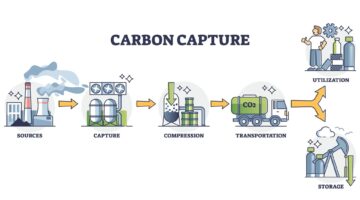
What is Carbon Offsetting?
Carbon offsetting is essentially the idea that you can “make up for” the carbon you release into the atmosphere by funding a project that reduces the overall amount of greenhouse gasses in the atmosphere.
What kind of projects count as carbon offsetting?
One of the biggest myths about carbon offsetting is that it’s a fixed and quantifiable thing. In reality, you’re not paying to have a set amount of carbon removed from the atmosphere – science doesn’t work like that. What you’re doing is investing in a project that aims to reduce the overall amount of greenhouse gasses being pumped into the atmosphere. The kinds of projects funded from carbon offsetting include, but are by no means limited to:
- Biodiversity programmes
- Renewable energy infrastructure
- Reforestation
- Cleaner fuel sources
- Updating old, inefficient power-plants
- Energy efficiency measures
- Investment in low-carbon transportation
Since the schemes vary so much, so too does the cost of carbon offsetting. At the moment it’s averaging out at about £8 per tonne of CO2, which equates to around £45 to neutralise the average family gas and electric, or around £20 for a flight to California.
How does carbon offsetting work?
International Carbon Trading
This is basically one of the ways that countries and big companies trade carbon “credits” in order to offset their carbon use. The market is split into two sections, the compliance market exists to allow organisations to carbon offset and ensure that that they with terms set out in the Kyoto Protocol. There are a lot of complicated acronyms associated with the compliance market, but all you really need to know is that this side of the carbon trading market is pretty heavily regulated. When you purchase a ton of CO2 offsetting on the compliance market, what you’re buying is known as a Certified Emissions Reduction (CER), which can be kept or traded on.
The other part of carbon trading is called the voluntary market, and it’s kept completely separate. The voluntary market is where companies, governments of individuals can buy carbon offsets that don’t qualify for the compliance market. Since there aren’t any unified rules or regulations for the voluntary carbon market, it’s considered a little bit sketchy. Some standards have been created (Gold Standard, Verified Carbon Standard, and ISO 14064 to name the big ones), but most transactions still favour the clarity of the compliance market.
What is the problem with carbon offsetting?
The real problem is that the system is imperfect and relies on the success of projects that don’t always succeed. You may well pay your £20 and take your flight to California and sleep easy thinking that you haven’t added anything to the net global emissions, but that’s not really how it works. In reality, your £20 will go towards a much larger amount of money being used to fund a project like one of the above. Planting trees is a good example of why this might not be as green as you’d hope. Before the tree is planted it needs to be sourced, transported, and held. Every worker involved in the tree-planting project needs to get to the site, meaning more transportation. Every building in the process has its own associated emissions. All of these parts of the project have a carbon cost, which all go towards negating the impact of the newly planted trees. Just because something sounds low carbon, doesn’t necessarily mean that it is.
On another point, it seems that carbon offsetting provides a convenient excuse to continue excessive air travel. Why cut down on long-haul flights when you can simply pay a little more and jet around the world guilt-free? It encourages a travel culture without responsibility or accountability.
Is carbon offsetting good or bad?
It’s a tricky question to answer. The logic behind it is clear, trying to balance out our negative impact by investing in an equal positive impact. That said, the psychology behind it and the way it’s being manipulated, misrepresented to people, and used to absolve big-business of ecological responsibility is definitely problematic.
Carbon offsetting is an attempt at something generally positive, but at the current point the industry hinges primarily on misconception and greed. As the world moves slowly towards a more environmentally conscious future, it is imperative that carbon offsetting be better regulated and the public be better educated about the reality of how it works.
Think we missed something? Do you have a different opinion?
Comment below to get your voice heard…












No Comments yet! Be the first one.